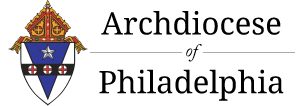Modern life is complicated. Sometimes we’re tempted to believe that an individual can’t really change things, but this isn’t true. As Pope Francis has said, good people of any religion can make a difference by taking an active role in the public square and “offering the best of themselves so that the leader can govern.”
Political apathy leads to missed opportunities to change at least some lives for the better – especially the persons Jesus referred to as “the least of these,” our poor.
Our state and city are at a critical juncture. Philadelphia’s urban life is a mix of immense possibility and energy, and very serious problems. Some recent reports suggest that Philadelphia is not just the poorest big city in the country, but also the city with the highest rate of deep poverty, defined as living on less than $6,000 per year or raising a child on less than $7,600 per year.
The lack of a quality education is a common thread among persons in severe poverty. And once stuck in deep poverty it’s very hard for anyone to escape due to the lack of skills needed to secure and hold employment.
Education is a vital issue for Pennsylvania politics. The fate of literally tens of thousands of children, and to a large extent the future of our own city, will be decided over the next few months and years. While Philadelphia has some of the highest performing schools in the Commonwealth, unfortunately, they’re the exception.
Despite the efforts of many excellent teachers and administrators, more than two-thirds of Philadelphia District schools are on the Commonwealth’s list of poorest performing schools. The children who attend these troubled schools are overwhelmingly poor and from minority backgrounds. Their chances of finding a way out of poverty as they mature are slim.
Poor parents, like parents everywhere, desire to give their children a quality, safe education; a chance at a fruitful life. They want their children to grow strong and pursue their dreams, to let their talents and interests take them as far as they can go. But without a quality education the dreams will remain unfulfilled and another generation of deep poverty will persist. This is painfully ironic, because at the moment, thousands of seats sit empty in safe, high quality Catholic and private schools throughout the region. Life lines to a good education do exist to help poor families, but, as so often happens, political conflicts stand in the way.
Catholic social teaching is built on a commitment to the poor. Few things are more important to people in poverty than ensuring their children’s education as a path to a better life. If the future of Philadelphia and Pennsylvania depends on an educated, productive public – and it obviously does – then providing every means to ensure a good education system becomes a matter of social justice. Prudent lawmakers from both major parties have understood this for years. They need to feel our support in the voting booth and throughout their public service.
The point is this: Proper funding for public schools is clearly important. But experience has already shown that this can’t be the only strategy because it doesn’t work for many of the students who most urgently need a good education. It’s therefore vital that our elected officials serve the real education needs of the poor by supporting school choice.
Currently in Harrisburg, House Bill 752 proposes to increase the Commonwealth’s Educational Improvement Tax Credits (EITC) to $170 million and the Opportunity Scholarship Tax Credits (OSTC) to $80 million. Rep. Jim Christiana (R-Beaver) is the prime sponsor. The Speaker of the House, Rep. Mike Turzai (R-Allegheny), has very wisely identified this legislation as a priority.
These successful tax credit programs fund scholarship organizations that enable tens of thousands of students, including those who are most needy, to attend good schools of their choice. Catholic and other non-government schools benefit greatly from these programs – but only indirectly, and only because parents and students freely choose them because of their quality. It’s also important to realize that many of the students in our inner-city schools who benefit from the EITC and OSTC programs are not Catholic. Our schools welcome them as part of our Gospel commitment to the common good.
With so much at stake in this year’s state budget debate, lawmakers are likely to support only those programs that receive the most constituent feedback. Rep. Turzai and HB 752’s sponsors can use all the help that we in the Catholic community can offer. Public support for EITC and OSTC is key to ensuring that these valuable programs, which benefit so many poor families, continue and grow.
Please contact your state representative and state senator, and let them know that you support EITC and OSTC as a matter of principle on behalf of families, students, and especially the poor.
For more information, please see this action alert offered by the Pennsylvania Catholic Conference. See this link to contact your elected officials by phone or email.
Editor’s Note: Columns will be published each week on www.CatholicPhilly.com and can also be found at https://archphila.org/archbishop-chaput/statements/statements.php.
Contact
Kenneth A. Gavin
Director of Communications
215-587-3747






